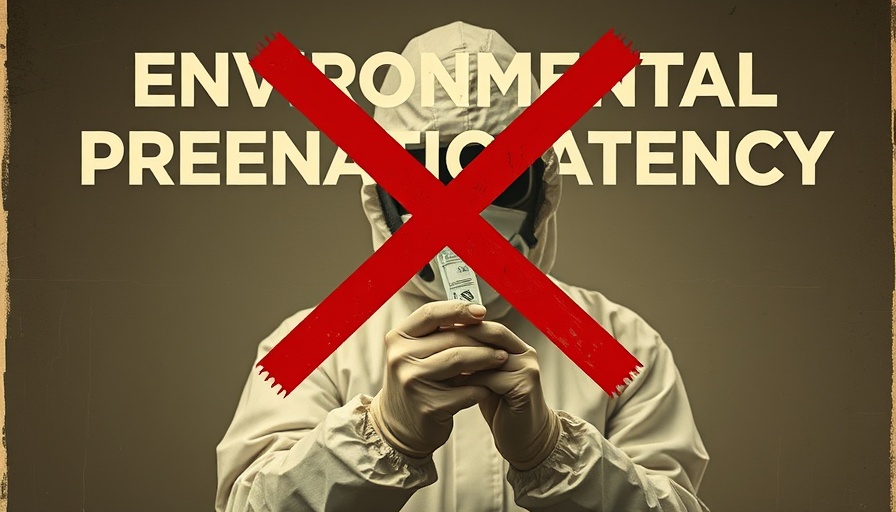
EPA Employees Stand United: A Call for Scientific Integrity
In a bold move echoing the voices of those dedicated to environmental protection, over 170 employees from the United States Environmental Protection Agency (EPA) have come together to publish a 'Declaration of Dissent.' Their collective message? A strong rejection of the policies set forth by the Trump administration. Released on June 30, 2025, this declaration underscores their commitment to safeguard human health and the environment, foundational goals that have guided the EPA since its inception in 1970.
Understanding the Implications of Dissent
The heart of the declaration revolved around a crucial concern: the Trump administration's deregulation initiatives undermine the EPA’s core mission. The document articulates employees' worries that “harmful deregulation” and a tendency to mischaracterize previous actions by the agency threaten not only the environment but public health as well. This dissent demonstrates not just a reaction to policy but reflects a deeper commitment to scientific expertise and evidence-based decision-making that has been a hallmark of the agency's efforts.
The Importance of Science-Based Policies
This is not merely an employee grievance; it's indicative of a larger issue affecting public trust in scientific institutions. As we navigate through climate change and environmental degradation, the importance of utilizing scientific research in policymaking cannot be overstated. The dissent by EPA employees highlights the concern that when science is sidelined, consequences can be dire. They call for a recognition of science's crucial role in formulating policies that protect the environment and public health, appealing directly to the American people.
A Broader Movement Among Federal Employees
The EPA dissent is part of a growing trend among federal employees willing to challenge governmental policies they deem detrimental. Across various agencies, including the Department of Agriculture and the National Oceanic and Atmospheric Administration, employees have voiced similar concerns over policies perceived as harmful. This trend speaks to an evolving workplace culture where whistleblowing for the greater good is becoming more normalized. It raises essential questions about the role of civil service in democracy and employee responsibility when it comes to ethical governance.
What This Means for the Future of Environmental Policy
As we look toward the future, the EPA’s dissent represents a pivotal moment for environmental policy in the U.S. Climate activists and concerned citizens alike should monitor these developments closely, as they could signify a shift back to prioritizing science and sustainability over short-term deregulation. With public support, these employees could catalyze significant policy reviews and changes intended to embrace solutions rooted in scientific integrity.
Actionable Insights: How You Can Get Involved
What can environmentally conscious individuals do in light of this movement? First, stay informed about the policies affecting our environment and the opinions of scientists and experts. Second, engage in community discussions and advocacy efforts that support science-led regulations and practices. Additionally, consider supporting organizations that align with these values and advocate for robust environmental policies.
The Emotional Weight Behind Scientific Advocacy
For those dedicated to environmental activism, this declaration carries significant emotional weight. It reflects a struggle between professional integrity and political pressure, sparking feelings of hope for a more sustainable future while also invoking concern over continued attacks on environmental protections. By supporting these employees, the public can send a message that scientific integrity matters and that they demand a government that prioritizes health and the environment above political agendas.
The efforts of these EPA employees serve as a rallying cry for all who care about the environment. In light of this moment, consider how you can add your voice to the chorus of those advocating for a science-based approach to environmental policy. Your voice matters—stand up for science, for the planet, and for the well-being of future generations!
 Add Row
Add Row  Add
Add 




Write A Comment